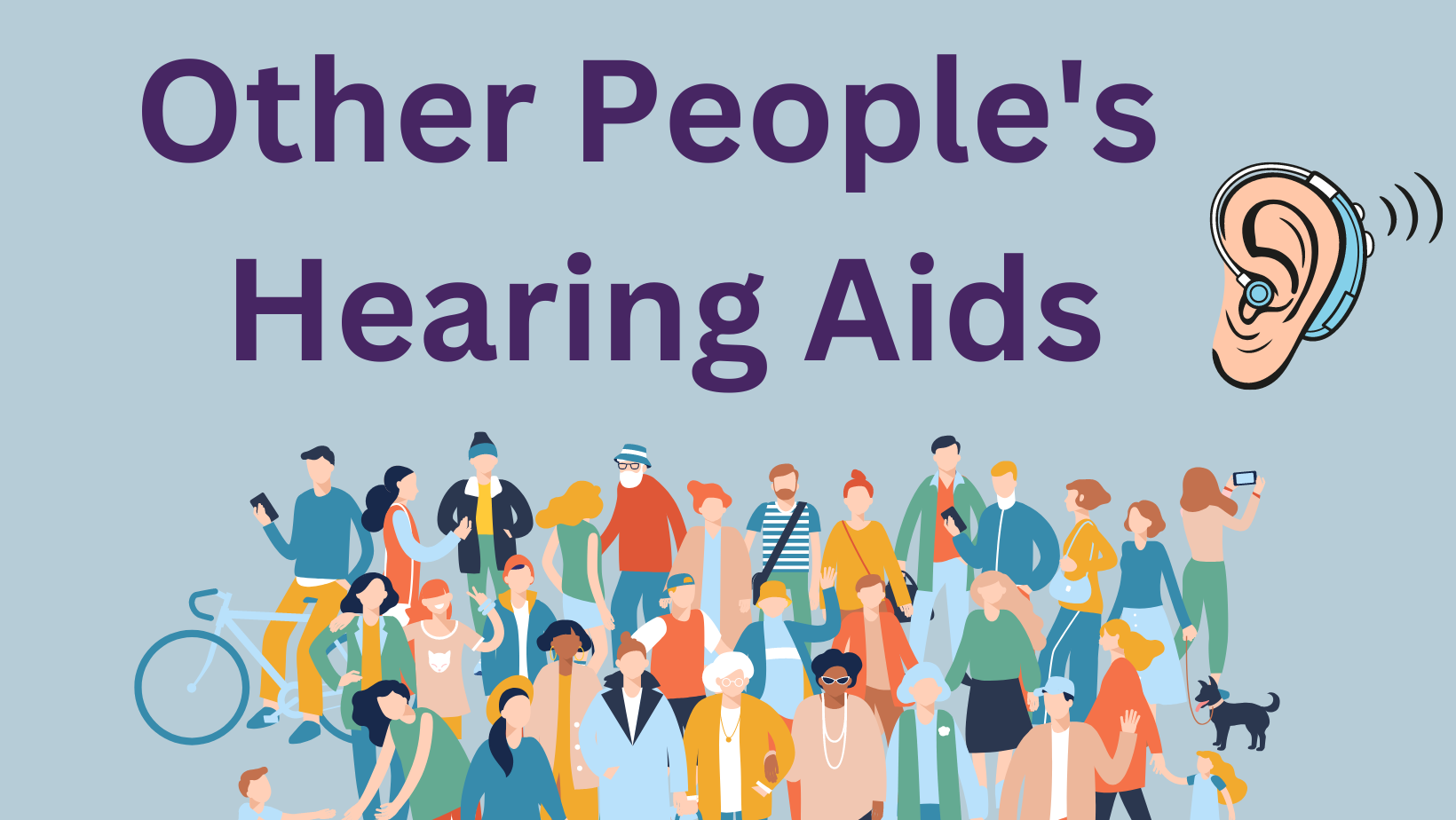In my single days, when any random guy entered my field of vision, my eyes would slide to his ring finger on a quick intelligence-gathering mission: why waste precious flirting time with someone who is spoken for?
While I still do this on occasion, out of habit, I’m more likely wherever I go—the grocery store, a restaurant—to aim my sight higher, scanning ears for hearing technology, to see who might be one of ‘my people’.
There are many of us these days. But when I do see the glint of a hearing aid, most often behind a man’s ears as women tend to cover theirs at least partially with their hair, I usually say nothing to its owner. One reason is that I haven’t yet come up with any good opening lines.
“You too, huh?”
“So, I see you have a thing. How’s it working for you?”
“Hi! Interested in joining my club?”
The Hearing Loss Club
Any of these approaches could set a stranger back ten years if they are not yet in a “good place” with their hearing loss. Just when they had almost convinced themselves that the thing in their ear wasn’t noticeable, a hearing loss evangelist accosts them among the fruits and vegetables. So, I say nothing. But if I catch their eye, I might raise my chin in recognition and then move on, leaving the stranger wondering why did I do this—were they supposed to recognize me? If they see my own hearing aid that I’m bobble-heading in their direction, the penny may drop. But even so, I wouldn’t expect them to smile gratefully in recognition; not everyone wants to be in the Hearing Loss Club, especially if membership comes with a secret sign that you’re expected to share with anyone who is sporting a hearing aid.
Unless we see a stranger’s hearing aid, we couldn’t know that a person has hearing loss unless we engage with them for some reason. And sometimes an unexpected connection can change a life. My friend Myrtle tells the story of such a casual encounter.
“I was in a line-up at Tim Hortons, picking up supper after a long day. I gave the girl my order – and I kept on telling her, because she didn’t understand me. Finally, I asked, ”What am I doing wrong!” She turned red and said, “It’s not you, I have a hearing loss!” A co-worker helped her get my order, and when she wasn’t busy, I asked if I could talk to her.
I told her I was deaf. Her face lit up. She was only sixteen and we spoke together for a long time. Her boss didn’t know and she was afraid of losing her job. I gave her some suggestions about workplace accommodations and about our local support group. She joined the youth group and became a great advocate. Most importantly, she became empowered and successful – all because of a chance meeting with someone who was just like her.”
Connecting with other people with the same issue changed my life. Hearing loss can shrink our world, through tiny, potent disconnects that separate us from the people in our lives, including the ones we haven’t met yet. Until meeting others with hearing loss, I didn’t realize how powerful a grip this disability held on my life.
Meeting them, my world became larger and brighter.
Other people’s hearing aids can inspire us. Those gleaming bits of silver and cochlear implant sound processors tell us that we are understood and our challenges are shared. Or if we are on the fence about our hearing loss, the sight of happy hearing aid users in the grocery store might just be the push we need.







The connection you can have immediately when someone else has been or is in your shoes. I teared up when she said she had hearing loss and the quick connection with you.
Beautifully written, Gael. My husband and I have just joined HLAA and he is more hopeful than he’s been in years. You folks are doing beautiful work. Thank you.